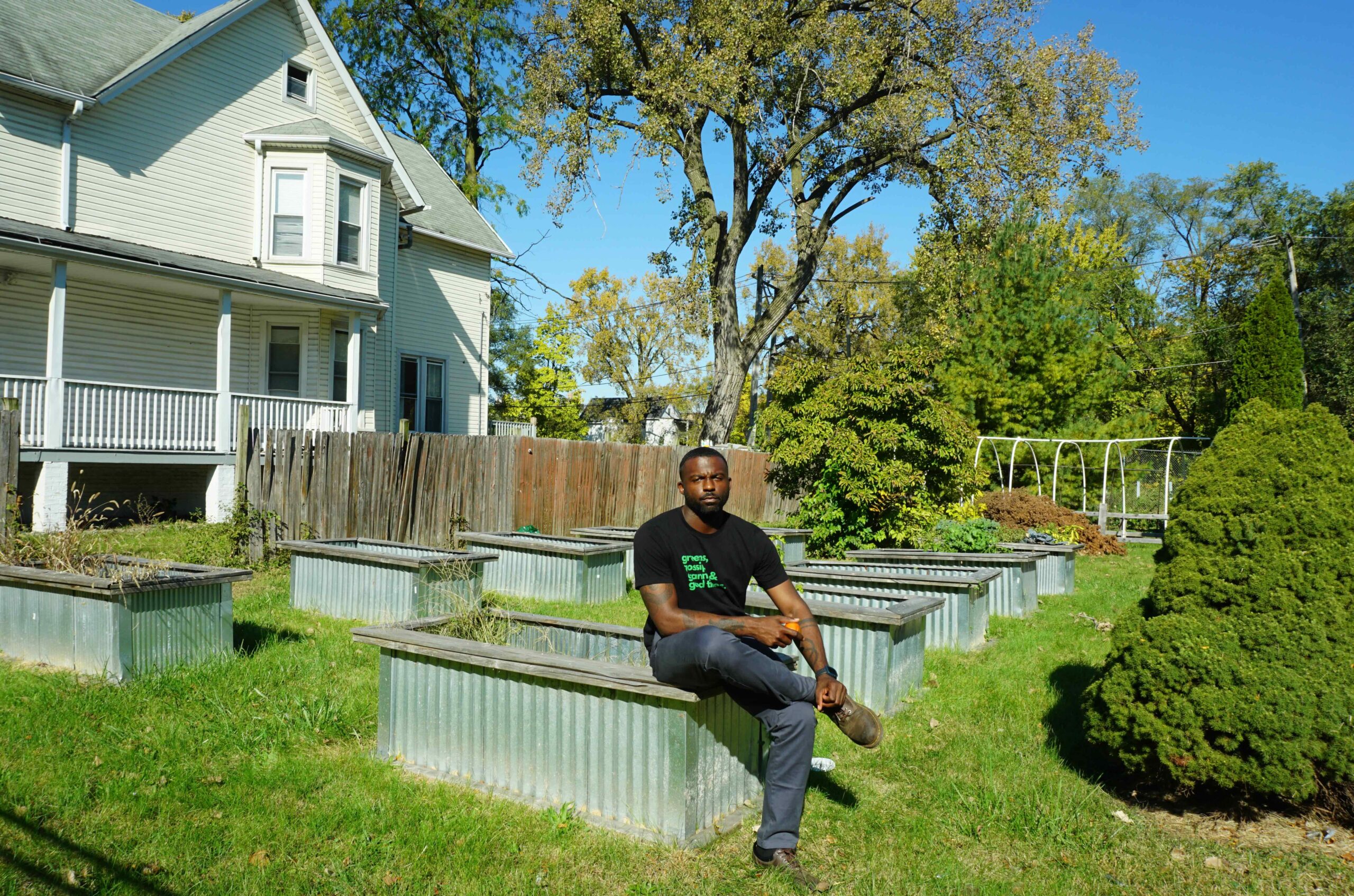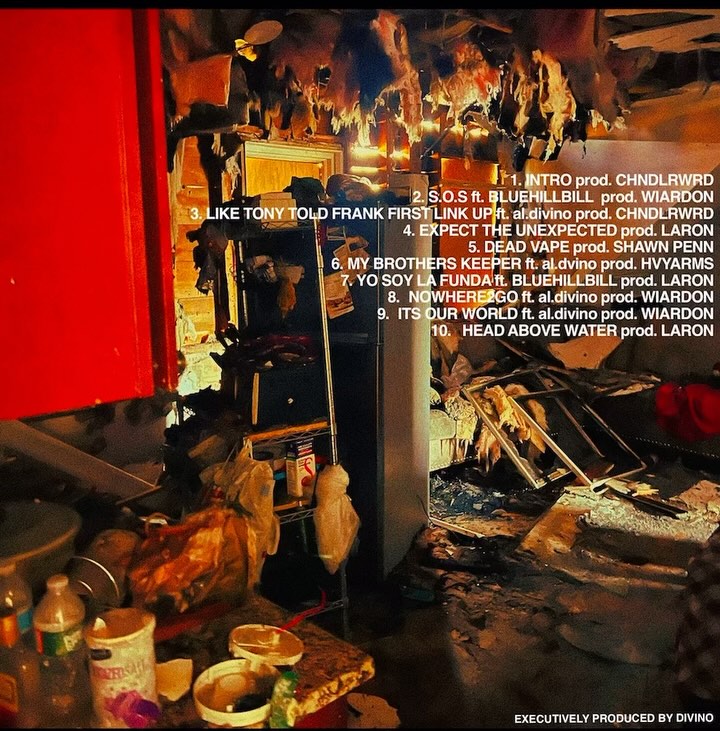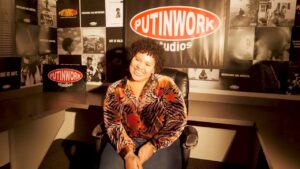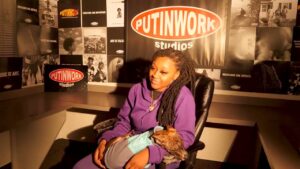Stephan Hamer took over his family’s homestead on Chicago’s South Side in 2023. With a background in permaculture and homesteading, Hamer envisions transforming the three-lot property he inherited from his grandmother into a community-centered space. As a caregiver to his late grandmother, he says he developed a deeper understanding of genuine care, shaping his approach to engaging with people and the land. Rather than prioritizing profits, he’s focused on building community and connection with the land.
Located in Englewood, a neighborhood impacted by poverty and high rates of vacant lots and gun violence, Hamer’s homestead offers a hopeful counter-narrative. Along Marquette Road, his urban farm grows black walnuts, pears, muscadine grapes, green tomatoes, blackberries, and kale. Hamer often turns the produce into jams, pies, and personal care products, sharing them with friends and neighbors. Welcoming community members to pick produce, he emphasizes building relationships based on trust and mutual respect.
Hamer’s grandmother, Alma, who acquired the home and nearby lots in 2003 through Chicago’s Dollar Lot Program, married into the family of Fannie Lou Hamer, a civil rights activist known for her work with the Freedom Farm Collective. Reflecting on her legacy, Stephan acknowledges the challenges many Black urban farmers face with land ownership and zoning laws, especially in cities like Baltimore, Detroit, and Milwaukee. Black farmers make up just 1.3% of all U.S. farmers, highlighting the need for equitable access to land and resources.
Hamer advocates for rethinking food access, suggesting that food deserts could be transformed when communities are given the tools to grow food sustainably. He also sees potential in Englewood’s vacant lots, envisioning the area as a “food forest” abundant with Illinois native plants, like Goldenrod, that thrive in neglected spaces.
To support Black farmers, recent legislation, including the Justice for Black Farmers Act of 2023 and funding from the Inflation Reduction Act, aims to address systemic barriers in agriculture. As Hamer considers the future of his family homestead, he remains committed to using the space as a safe haven for his family and community, asking himself how it can best serve for good.














